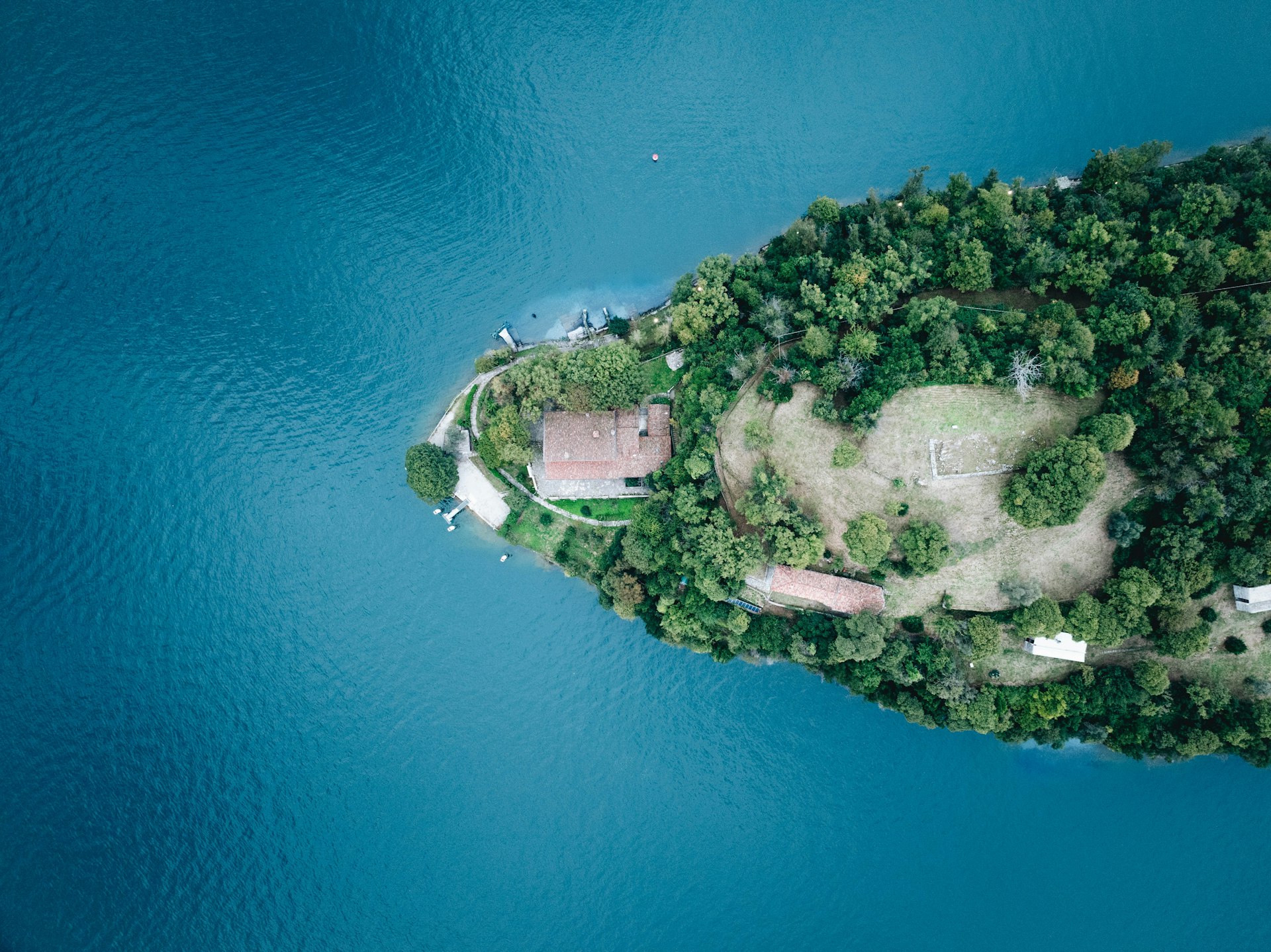Your Complete Guide to Seamless Island Hopping Adventures

Photo by Max on Unsplash
Introduction: The Allure of Island Hopping
Island hopping offers travelers an exhilarating way to explore a region’s hidden gems, from secluded beaches and vibrant local cultures to unique marine life and unforgettable sunsets. Whether you’re seeking organized tours in the Mediterranean, off-the-beaten-path adventures in Asia, or family-friendly itineraries in the Caribbean, a well-crafted travel guide can make or break your experience. This comprehensive guide delivers actionable steps, expert recommendations, and real-world examples to help you plan and enjoy seamless island hopping adventures.
Understanding Island Hopping: What to Expect
At its core, island hopping involves traveling from one island to another within a close cluster, often by boat, ferry, or small aircraft. Destinations like Greece, the Philippines, and the Caribbean are particularly popular for this type of travel, offering a range of experiences from lively nightlife to tranquil nature escapes. Travelers can choose between pre-arranged tours with dedicated guides or independently planned routes using trusted guidebooks and local resources. While island hopping is often associated with adventure and spontaneity, careful planning is essential to avoid logistical headaches and maximize your enjoyment.
Choosing the Right Island Hopping Travel Guide
Reliable travel guides are essential for making informed decisions about routes, accommodations, activities, and local customs. Several well-known series and platforms are recognized for their comprehensive coverage and up-to-date advice:

Photo by Ken Suarez on Unsplash
- Lonely Planet: Known for its thorough coverage of popular island hopping regions worldwide, including detailed maps, hotel listings, and activity suggestions. Available in print, with some guides offered digitally. According to multiple user reviews and travel forums, Lonely Planet’s regional guides, such as those for Malta, Gozo, and the Greek islands, are frequently cited for their depth and reliability [2] [3] .
- Rick Steves’ Guides: Especially strong for European destinations, Rick Steves is praised for honest, opinionated advice and practical itineraries. His island hopping coverage in locations like Greece is detailed and candid, helping travelers set realistic expectations [2] [4] .
- Blue Guides: Highly recommended for travelers seeking in-depth cultural and historical context, particularly for Greek islands and the Aegean. Often favored by those looking for more than just logistics [3] .
- Moon Travel Guides: While traditionally focused on the Americas and Pacific regions, Moon Guides are well-regarded for user-friendly maps and hotel recommendations. They are especially useful for families or sustainable travelers seeking practical tips [4] .
To access these guides, you can purchase them from major bookstores, official publisher websites, or reputable online retailers. Be cautious to verify you are purchasing the latest edition, as information can become outdated quickly.
Booking Organized Island Hopping Tours
For travelers seeking convenience and expert insight, booking a guided tour can be a stress-free way to experience multiple islands. Established tour operators often handle logistics, accommodations, and local activities, allowing participants to focus on enjoying the journey.
Recent reviews highlight the benefits of choosing a reputable operator: participants report stress-free itineraries, knowledgeable guides, and opportunities to connect with like-minded travelers. One reviewer described their Greek island hopping experience as “seamless and memorable,” with a “fantastic range of activities” and a “completely justified” price, given that all logistics were managed by the tour provider [1] . Another traveler emphasized the value of having a passionate, organized guide who “went above and beyond” to ensure a comfortable and enjoyable trip.
To book a reputable tour, consider the following steps:
- Research established tour companies with verified positive reviews on sites like TripAdvisor or direct provider pages.
- Contact the provider to confirm details such as group size, included activities, and cancellation policies.
- Verify credentials, registration, and customer service responsiveness.
- Ask about flexibility for solo travelers or special interests, such as culinary tours or wildlife excursions.
Always confirm the legitimacy of the provider before making payments. If you are unsure of a company’s website, search for their official name and check for recent reviews or regulatory accreditation.
Independent Island Hopping: Planning Your Own Adventure
Many travelers prefer the flexibility of designing their own itinerary. While this approach provides freedom, it requires more research and preparation. Here’s how to proceed:
- Identify Your Destination Region: Research clusters of islands that are accessible by regular ferry or boat service. For example, the Greek Cyclades, the Philippines’ Palawan region, or the Caribbean’s Grenadines.
- Consult Current Guidebooks: Use trusted resources like Lonely Planet, Blue Guides, or Moon Guides for up-to-date information on routes, transportation schedules, and local highlights [2] [3] [4] .
- Book Transport in Advance: Ferry and boat schedules can be seasonal and subject to change. Use official ferry operator websites or search for “[Region] ferry schedules” for the most accurate information. For popular routes, book tickets ahead of time, especially during peak travel months.
- Reserve Accommodations: Accommodation options may range from boutique hotels to homestays. Use reputable platforms, read recent reviews, and check for flexible cancellation policies.
- Plan Activities: Many islands offer unique attractions, such as snorkeling, hiking, or cultural festivals. Use guidebooks or local tourism board websites for inspiration.
For travelers interested in sustainable tourism, look for guides and operators that emphasize eco-friendly practices, support local communities, and provide guidance on minimizing environmental impact.
Real-World Case Study: El Nido, Philippines
El Nido in the Philippines is a classic example of a vibrant island hopping destination. One traveler described booking a day tour through a reputable platform and meeting the group at the beach for a day of exploration. Guides were “super friendly,” and the experience included a memorable lunch and stops at iconic beaches and lagoons. However, the traveler noted that the popularity of these tours means the sites can be crowded, so adjusting expectations is crucial. Despite the crowds, the natural beauty and well-organized experience made it a highlight of their trip [5] .
To book a similar tour, search for “El Nido island hopping tour” using reputable travel marketplaces or local tourism boards. Always read recent customer feedback and verify the operator’s credentials before booking.
Potential Challenges and Solutions
Island hopping, while rewarding, comes with unique challenges. Common issues include unpredictable weather, limited transportation options, or overcrowding at popular sites. Here’s how to address these challenges:
- Weather Variability: Weather can impact ferry schedules and safety. Always check forecasts and build flexibility into your itinerary.
- Overcrowding: Some destinations, especially during peak seasons, may be crowded. Consider visiting in shoulder seasons, starting tours early in the day, or choosing lesser-known islands.
- Logistical Delays: Ferry and boat schedules may change with little notice. Confirm departure times in advance and allow extra time for connections.
- Language Barriers: In remote regions, English may not be widely spoken. Carry a phrasebook or translation app, and be patient with local staff.
Guidebooks and online resources often provide tips on how to navigate these challenges, but flexibility and a positive attitude are key.
Alternative Approaches: Digital Resources and Local Insights
In addition to traditional guidebooks, consider digital resources such as travel blogs, forums, and review sites. Platforms like TripAdvisor, travel subreddits, and independent blogs offer up-to-date insights and firsthand accounts. However, always cross-check information with official tourism board sites or current guidebooks to ensure accuracy.
Engaging with locals can also yield valuable tips. Many travelers report that advice from hosts, guides, or fellow visitors often leads to the most memorable experiences. Don’t hesitate to ask about lesser-known islands, local events, or dining recommendations.
Step-by-Step Summary for Planning Your Island Hopping Adventure
- Define your region and travel goals (adventure, relaxation, culture, etc.).
- Consult verified guidebooks and online resources for up-to-date information.
- Decide between an organized tour or independent travel based on your preferences.
- Book transportation and accommodations well in advance, especially for high-demand routes.
- Review recent customer feedback and guidebook updates for the latest tips.
- Pack appropriately for boat travel, including sun protection, waterproof bags, and motion sickness remedies.
- Remain flexible and open to changes-sometimes the best experiences are unplanned.
References
- [1] Island Hopping (2025). Reviews and firsthand experiences of organized island hopping tours in Greece.
- [2] Gather and Go Travel (2024). Review of the best travel guidebook series.
- [3] TripAdvisor Forum (2024). Recommendations for island travel guidebooks.
- [4] The Atlas Heart (2025). Best travel guides for 2025, including reviews of guidebook series.
- [5] Girl on a Zebra (2024). Personal review of an El Nido island hopping tour.
MORE FROM oncecoupon.com













